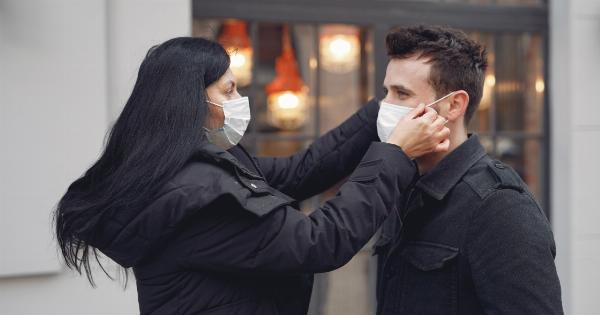Laryngitis is an inflammation of the larynx or voice box caused by factors such as infections, allergies, or irritants. Common symptoms of laryngitis include hoarseness, a sore throat, and difficulty speaking or singing.
If you’re experiencing laryngitis, there are some tips and tricks that may help you feel better.
1. Rest your voice
One of the most important things you can do when you have laryngitis is to rest your voice. Avoid talking or singing for extended periods and try to speak softly when you do need to communicate.
Whispering can be especially damaging to your vocal cords, so try to avoid it as much as possible. Limiting your voice use can help reduce inflammation and promote healing.
2. Stay hydrated
Staying hydrated can help keep your throat moist and reduce irritation. Drink plenty of water, and avoid caffeine and alcohol, which can dehydrate you further.
You may also find relief from warm beverages like tea or broth, which can help soothe your throat.
3. Use a humidifier
A humidifier can add moisture to the air and help soothe your throat. Keep the humidity level in your home between 30-50% to promote optimal comfort. Also, be sure to clean your humidifier regularly to prevent bacteria and mold growth.
4. Gargle salt water
Gargling with warm salt water can help soothe a sore throat and reduce inflammation. Mix 1/4 to 1/2 teaspoon of salt in a glass of warm water and gargle the solution for 30 seconds. Repeat every few hours as needed.
5. Avoid irritants
Irritants like tobacco smoke, pollutants, and chemicals can aggravate laryngitis symptoms. Try to avoid exposure to these irritants and reduce your risk of complications.
If you need to be around these irritants, consider wearing a face mask or taking other precautions to protect your throat.
6. Try over-the-counter remedies
There are many over-the-counter remedies available to help relieve laryngitis symptoms. Throat lozenges and sprays, cough suppressants, and pain relievers can all be useful tools in your recovery.
Be sure to read and follow the instructions carefully before using any medication.
7. Consider natural remedies
There are also many natural remedies that may help with laryngitis symptoms. For example, ginger tea can help reduce inflammation, while honey can soothe a sore throat.
You may also find relief from steam inhalation or using essential oils like peppermint or eucalyptus.
8. See a doctor if necessary
If your laryngitis symptoms persist for more than two weeks, or if you have difficulty breathing or swallowing, you should see a doctor. They can help determine the underlying cause of your laryngitis and provide treatment if necessary.
In some cases, laryngitis can lead to more severe complications, so it’s important to seek medical attention if you’re concerned.
9. Practice good vocal hygiene
Practicing good vocal hygiene can help prevent laryngitis and other voice disorders. This includes avoiding shouting or screaming, staying hydrated, and using proper voice techniques when singing or speaking.
If you’re a professional vocalist or speaker, consider working with a vocal coach to develop healthy voice habits.
10. Rest and take care of yourself
Finally, it’s important to take care of yourself and rest as much as possible when you have laryngitis. Avoid strenuous physical activity and get plenty of sleep to allow your body to heal.
With proper care and treatment, most cases of laryngitis will resolve on their own without complications.



























